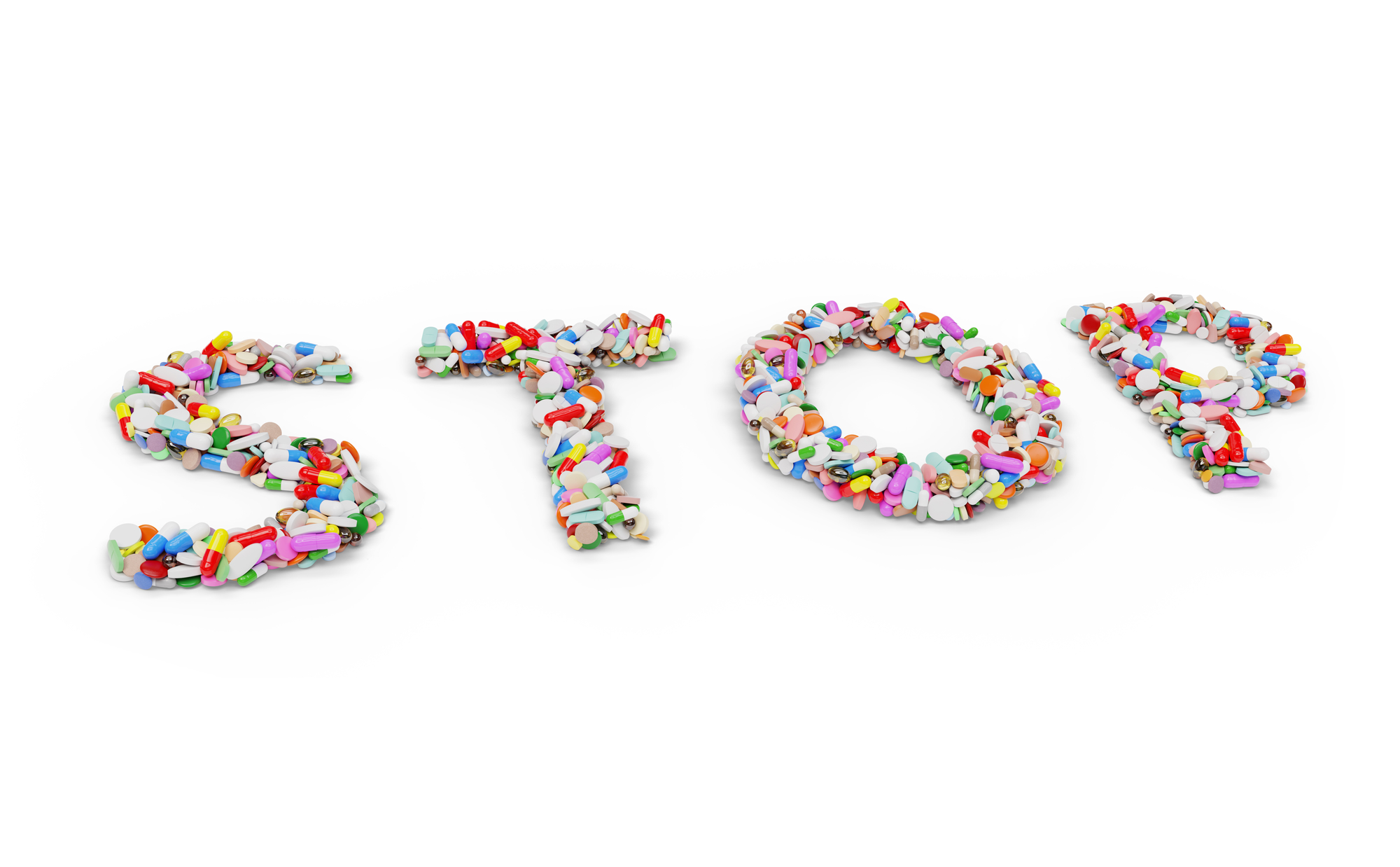A research study was recently published that led to media headlines proclaiming that psychiatric medications are not overprescribed for children.
Of course, I immediately searched for the study to read it for myself. Since there have been concerns raised on the topic of overmedicated children and adolescents with mental health symptoms, I wanted to see what kind of new data this study would bring to the table. With well over 8 million children ages 0-18 in the United States taking at least one psychiatric medication (including over 1 million in the birth – 5 year range) this is a critical issue for us to understand. What I found in this new study, and the surrounding publicity is simply a repetition of the flawed and unproven story that prescription medications are the solution to mental health symptoms.
Overview of the Study
This study looked at the number of children and young adults ages 3-24 who had filled at least one prescription medication for a psychiatric diagnosis. It then compared this to the prevalence estimated for the number of children in this age range diagnosed with ADHD, depression, anxiety, or another psychiatric diagnosis. Results showed that there are more children diagnosed with these conditions than there were prescriptions filled for medications related to these conditions. The authors then concluded that overprescribing is not a concern because of this and that perhaps stimulant, antidepressant, and antipsychotic medications are actually under-prescribed.
Let’s break down what is actually going on here …
The Back Story
Disorders such as ADHD, depression, and anxiety are subjective diagnoses given to people based on clusters of symptoms. These diagnoses tell us nothing about what causes the symptoms or why they are there, just that the person is exhibiting them. You can have 10 children diagnosed with ADHD, all of whom actually have different issues that need to be addressed. However, because they are all exhibiting symptoms of inattention and/or impulsivity/hyperactivity they end up with the same diagnosis.
To muddy the waters even more …
There are no definitive tests or ways to determine whether these disorders are present. So it is the professional’s subjective assessment based on parent reports, teacher input, and associated observations and checklists. Meaning, a child could see 10 different clinicians and receive multiple different diagnoses (or no diagnosis at all) based on the training and beliefs of the professional, the timing of the observations, and other various factors.
As psychiatric drugs have increasingly taken over the world of mental health in the past 50 years, the common thought process is that a psychiatric diagnosis should be paired with a prescription medication. In other words, the presence of one of these disorders equates to needing psychiatric medication to treat the condition. If we agree that this is true, it means that a child diagnosed with ADHD requires a stimulant, a child diagnosed with depression requires an antidepressant, and a child diagnosed bipolar requires an antipsychotic medication. If they aren’t taking the medication that matches up with their diagnosis, then this could be considered under-treatment, meaning their healthcare providers are not prescribing the drug that supposedly treats these diagnoses.
The Problem
It’s nice and simple to think that resolving symptoms is as easy as giving a diagnosis and then prescribing the medication associated with that diagnosis. If that were the case then we wouldn’t have millions of children (and adults) taking psychiatric drugs and still not getting better. If it was true that the appropriate treatment for “conditions” like ADHD, depression, and anxiety was to take a drug specific to that condition (or take multiple drugs not specific to the condition but that might help because one drug doesn’t seem to be doing the trick), then we wouldn’t have kids who end up going from one prescription to the next without symptom resolution. We also wouldn’t have people (including kids) going on disability for mental health symptoms in larger numbers with every passing year. Pharmaceuticals may have taken over the storyline of mental health, but that does not mean there is science to support it.
Instead, what we actually have is a story developed and perpetuated by the companies that make and profit from these medications. This story has been allowed to take root and grow in the field of medicine and mental health because it is an easy story. The one diagnosis-one pill story feels so neat and easy. We like neat and easy. We like the idea that pills make problems go away. That story would be a great one, except that it isn’t true for most people. The evidence continues to grow that not only is this story untrue, but it leads to a very unhappy ending for many people with these symptoms.
Psychiatric symptoms and treatments do not fit a one symptom-one solution model
Human beings do not fit neatly into little diagnostic categories, there are no definitive ways to determine that a child had a specific condition, diagnoses do not tell us anything about the underlying causes of symptoms, and we have no research to support that specific drugs definitively align with specific diagnoses to resolve symptoms. Yes, there is research supporting that some drugs reduce some symptoms for some people some of the time. This same research also shows that even people who experience benefits also experience one or more significant problematic side effects. This is the case for children and adults.
There is very little research about psychiatric drugs used to treat children
While stimulant medications have the most research support in the short term, evidence indicates that these medications provide very little benefit in the long term. The vast majority of psychiatric drugs used with children have minimal or no research evidence to support that they are safe or effective in the short or long term for this population. There is also a significant amount of industry-bias and manipulation of data that infiltrates the research and leads to sketchy conclusions. The drug Paxil (paroxetine), for example, was initially declared safe and effective for teens, but further analysis after the fact revealed that it is neither effective nor safe for people under the age of 18.
Psychiatric medications are not a first-line treatment
Psychiatric medication is also not considered an appropriate first-line treatment approach for mental health symptoms in children. In fact, treatments such as parent training, counseling, cognitive behavior therapy, school supports, and more should all be considered and implemented before considering prescription medication options.
Here is another post you may be interested to read on the topic of what to do before turning to prescription drugs “What to consider before medicating your child for anxiety.”
Even if it is the case that medication can be part of the solution for some children some of the time, that still does not support the idea that all children with symptoms require a medication. If medications were a necessary component of treatment, as the authors of this study assume, then kids would inherently get better. Yet we know that people on medications don’t necessarily do better than those not on meds in the long term. For some conditions, people who have taken these medications actually do worse than people who never took them.
Given this information, one could make the case that most prescriptions were written for children and young adults with these symptoms actually constitute overprescribing!
So, What Does This Really Mean?
When reading a study like this we need to focus on what the data actually shows. In this case, it shows is that there are more children with diagnoses of ADHD, depression, and anxiety than there are children taking drugs for those conditions. It also shows that there are many children diagnosed with psychiatric conditions who are taking medication.
This study does not tell us whether children and young adults are receiving treatments other than medication, in combination with medication, or no treatment at all. It also doesn’t tell us whether other research-based treatments were used before resorting to medication. Perhaps the most important information lacking is whether children who are taking these medications are actually doing better than children with these diagnoses who are not medicated.
This study claims that psychiatric drugs are not being overprescribed for children because more children are diagnosed with ADHD, anxiety, depression, bipolar, etc. than the number of prescriptions written. That inherently assumes that children diagnosed with one of these subjective disorders should be given medication. It assumes that overprescribing would only be an issue if there were more children receiving prescriptions than children diagnosed with these disorders. According to this study’s assumptions, it would not be considered overprescribing if the number of children with a diagnosis of ADHD, depression, or anxiety was equal to the number of children taking one or more prescription medications for these conditions.
If every child with a symptom of inattention, hyperactivity, depression, anxiety, etc. is taking a prescription psychiatric drug this is not a problem. This is to be expected. This is appropriate prescribing.
Let that sink in for a moment, because this is actually a dangerous assumption that should give us all pause:
Children receive a subjective diagnosis that tells us only what symptoms they are experiencing and nothing about the causes of those symptoms. Then the correct treatment is to have them take a prescription psychiatric medication for that subjective diagnosis. To not give them a medication that is marketed for that diagnosis could, as the authors of this study state, constitute under-prescribing.
The authors of this study do a good job of interpreting their findings to follow the storyline of psychiatry, but as we’ve already established this is a fictional story and far from a factual one. Which leads us to…
One More Thing …
It is always important to look at the very end of any study, where authors are required to disclose any potential conflicts of interest. This allows us to see what potential financial and other biases the authors may have infused into the study discussion and conclusions. In the disclosures section of this study, we discover that 2 of the 6 authors have multiple types of financial relationships with pharmaceutical companies that make various psychiatric drugs prescribed for children. These two authors have done studies with medications from these companies, they have testified in court cases on behalf of pharmaceutical companies, been paid for things like speaking and travel, among other things. While this doesn’t automatically mean there is a conflict of interest, it certainly means there is at least some amount of bias towards pharmaceuticals and the companies that formulate and manufacture them.
The Questions That Need to Be Answered
Let’s get back to the big headlines that appeared when this study was released: psychiatric drugs are not overprescribed for children. The reality is that this study does nothing to answer that question when you look at the data and strip away the many false assumptions. If there was research showing that the appropriate treatment for these diagnoses in children is psychiatric medication, then the results of this study would indicate that meds are being prescribed too infrequently rather than too often. But that is not what the research shows. Given that medications tend not to resolve these issues for most people, and can actually make problems worse, it could very well be the case that too many prescriptions are being written for problems that would be more effectively solved with other approaches. It may well be the case that our children are overmedicated.
Much more research is needed on the outcomes of psychiatric medication as a treatment for children and young adults in the short and long term. As new studies are done we see significant side effect concerns, medications causing worse mental health symptoms and conditions, and evidence of the potential long-term damage that we are inflicting upon a generation of children by using poorly understood medications so freely. Do children taking these drugs get significantly better and stay symptom-free longer than children who receive other treatments or do not participate in any treatment? What are the short and long-term side effect trade-offs for people who do experience some symptom improvement? Does the use of psychiatric medications in children lead to increased physical and mental health problems as they age? These questions are yet unanswered, and until we have clear answers it is far too soon to declare that our children and young adults are not being overmedicated.
What You Should Do Next:
Sign up for my Better Behavior Naturally community newsletter
Sign up for my newsletter to get tips, resources, and supports to improve your child’s attention, anxiety, mood, and behavior…while making your job as a parent easier.
Enroll in one of my workshops
Check out one of my many workshops where you’ll join my exclusive community of parents in a one-of-a-kind virtual resource accessible 24/7. Whether you’ve got a child with a diagnosis like autism or ADHD, or are becoming more and more frustrated with a child who struggles to listen and cope, these workshops are designed to give you the information, tools, and support you need…whenever you need it.








